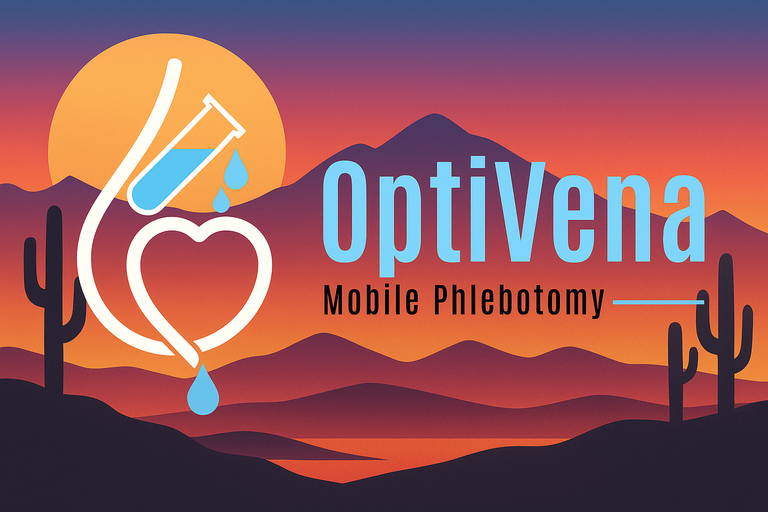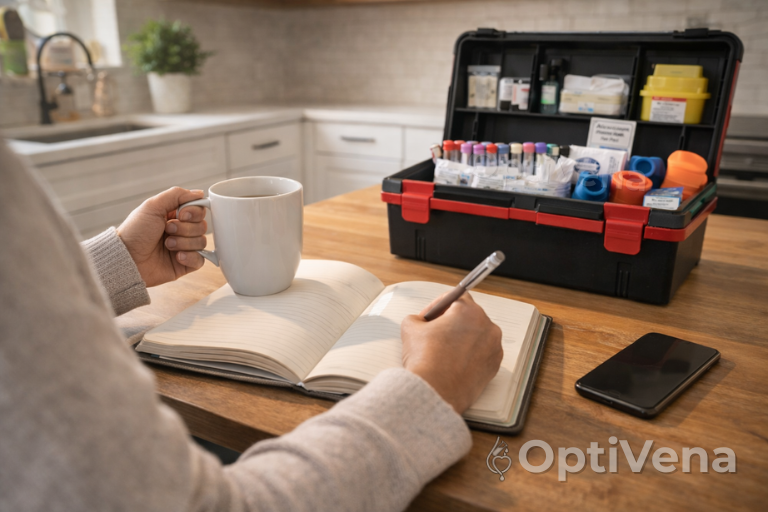Chronotypes & Blood Tests: Why Your Internal Clock Matters

Have you ever wondered why your doctor asks you to get bloodwork done in the morning? The reason has less to do with office hours and more to do with your body’s internal clock. This natural rhythm, known as your chronotype, plays a surprisingly big role in the accuracy of your lab results.
What Is a Chronotype?
Your chronotype is your body’s natural preference for when you feel most awake or tired. Some people are early birds, hitting their stride in the morning, while others are night owls who feel most alert later in the day. Just like sleep cycles, many of your body’s processes—including hormone production, metabolism, and even blood sugar regulation—are influenced by this internal clock.
Researchers have found that almost every system in your body runs on circadian rhythms. These 24-hour cycles act like a built-in timer that tells your organs and hormones when to activate. Cortisol, melatonin, and insulin are just a few examples of chemicals that follow these rhythms. When you consider that blood tests measure these very same markers, it’s easy to see why timing matters.
Why Timing Matters for Bloodwork
When you get your blood drawn, the results reflect what your body is doing in that moment. Here’s how timing can make a difference:
•Cortisol levels peak in the morning, then drop throughout the day. Testing too late may suggest a deficiency when none exists.
•Glucose and insulin sensitivity shift with meals and circadian rhythm, which is why fasting labs are often scheduled early.
•Cholesterol and triglycerides can vary depending on whether you had a late-night snack or skipped breakfast.
•Hormone levels such as testosterone, estrogen, and thyroid-stimulating hormone are highly sensitive to timing.
Even vitamin and mineral levels may be impacted. For example, hydration status in the morning after fasting overnight can make your kidney function markers appear higher than if tested later in the day after fluids.
Real-Life Impact on Results
A patient who schedules labs in the late afternoon might see different values than if the same blood was drawn early in the morning. This can lead to confusion, unnecessary retesting, or even misinterpretation of results. For instance, thyroid panels drawn in the afternoon often show slightly lower values than those taken earlier, which could raise concern for hypothyroidism. Similarly, afternoon cortisol may look concerning when it’s actually just following a normal daily decline.
Doctors know about these variations, which is why many tests are recommended in the morning and sometimes at consistent times across follow-up appointments. But for patients, this means added stress to fit bloodwork into an already busy schedule.
At-Home Lab Draws Adapt to Your Schedule
With OptiVena’s at-home blood draw service, you don’t have to stress about finding time before work or school. We meet you where you are—whether you’re an early riser or a night owl—and ensure your labs are drawn at the most accurate time for your needs.
Instead of battling long lines at a clinic, you can relax in your own home and schedule bloodwork during a window that fits your daily rhythm. Parents in Gilbert, busy professionals in Chandler, and retirees in Mesa all benefit from having their labs done in an environment where timing is more flexible and comfort is a priority.
Tips for More Accurate Bloodwork
If you want the clearest possible results, here are some practical steps you can take:
✅ Ask your doctor if timing matters. Not all labs are time-sensitive, but many are.
✅ Follow fasting instructions carefully. If you’re supposed to fast, stick to water only until after your draw.
✅ Be consistent. If you get a test regularly (like thyroid or cholesterol), aim for the same time of day each time.
✅ Hydrate. Dehydration, especially in Arizona’s dry climate, can concentrate your blood and skew kidney and electrolyte results.
✅ Reduce stress before testing. Even a rushed morning can spike cortisol and heart rate, slightly altering lab markers.
Takeaway
Your blood tells a story, but when you choose to get it drawn can affect the details. Understanding chronotypes helps you and your doctor get the clearest picture of your health. By taking advantage of at-home lab draws, you can schedule your appointment at the best time for your body and lifestyle.
At OptiVena Mobile Phlebotomy, we believe lab work should fit your life—not the other way around.
OptiVena proudly serves the East and West Valley of the Phoenix metro area.
•Queen Creek •San Tan •Gilbert •Chandler •Mesa •Tempe •Scottsdale •Phoenix Metro






